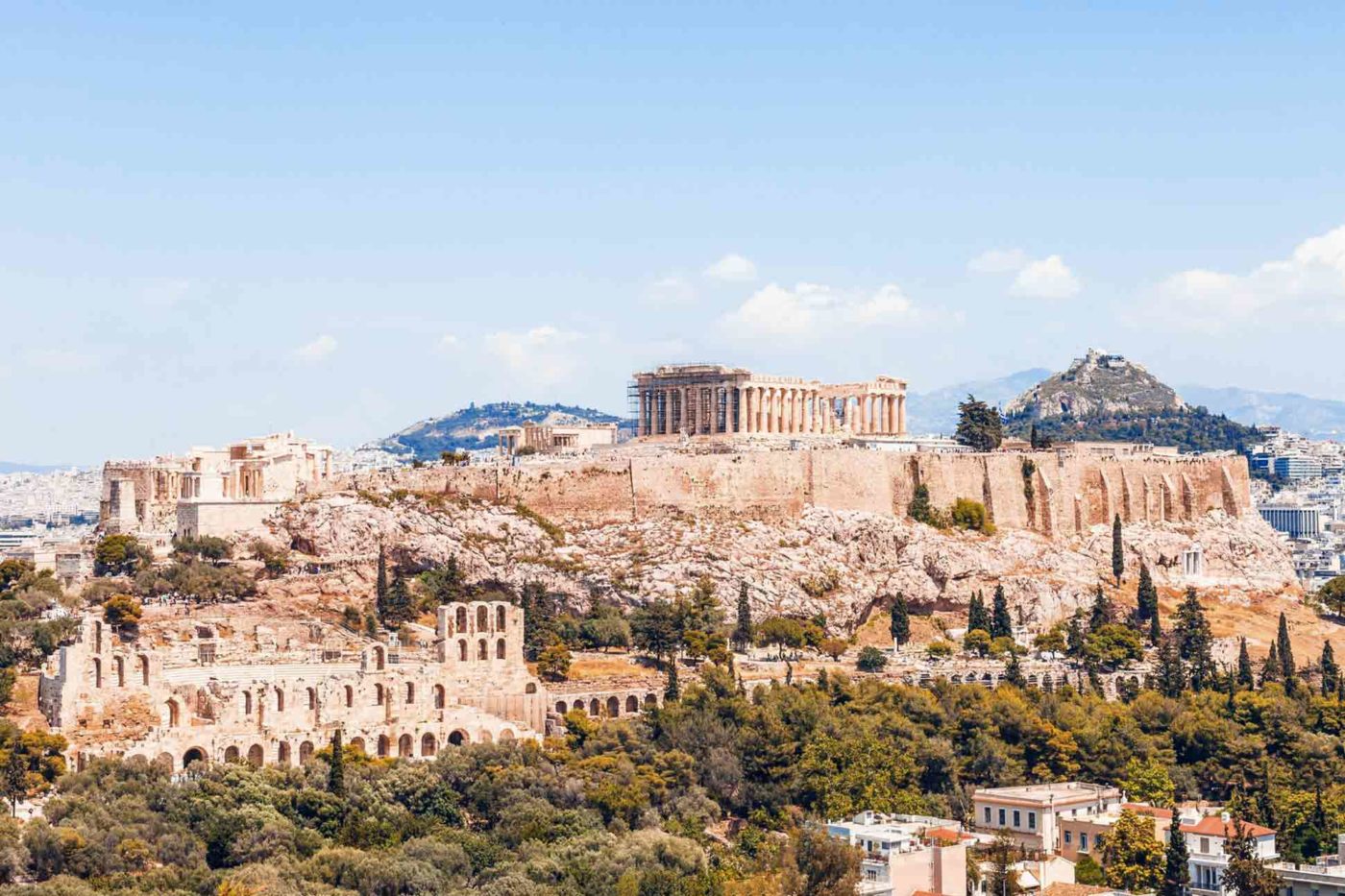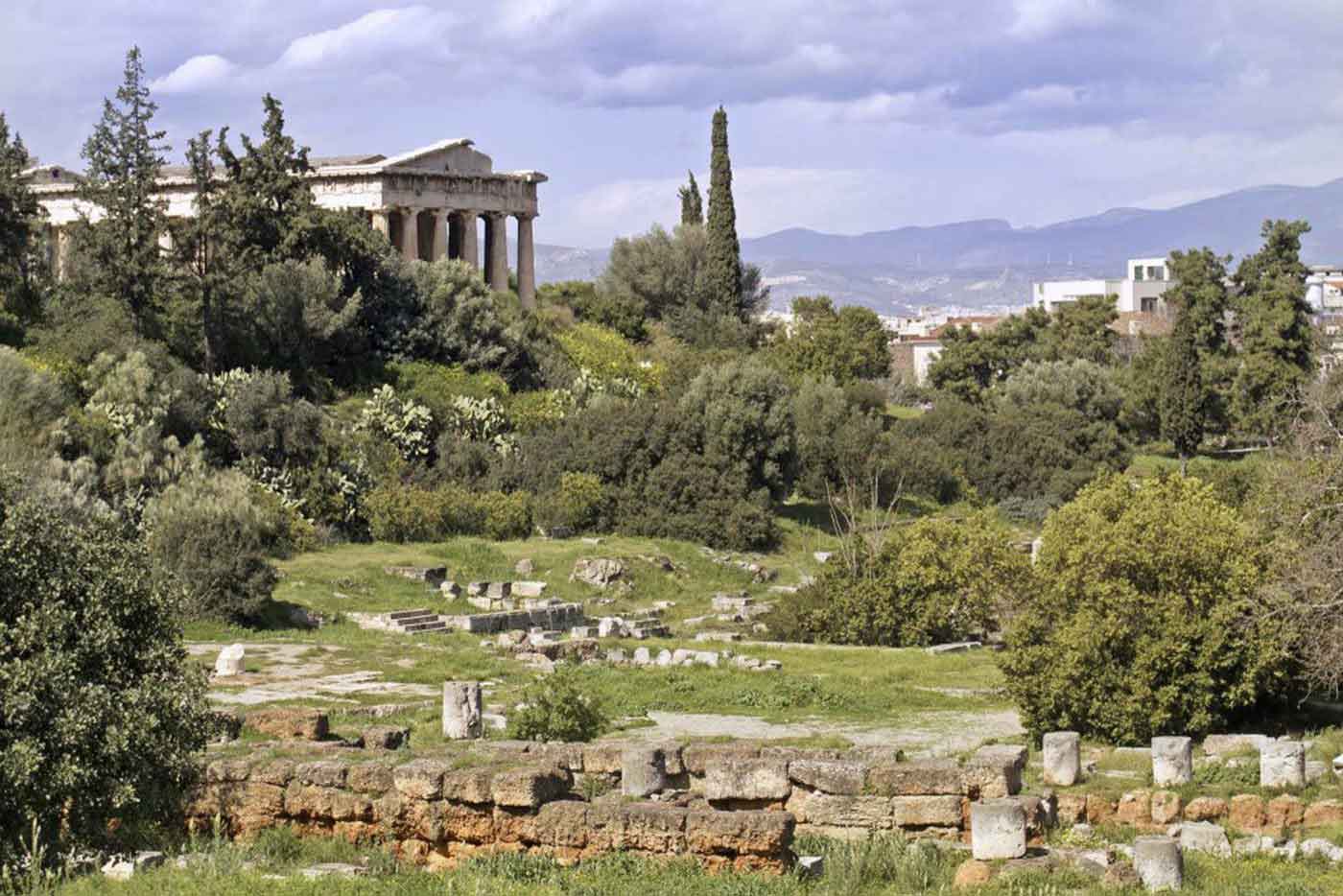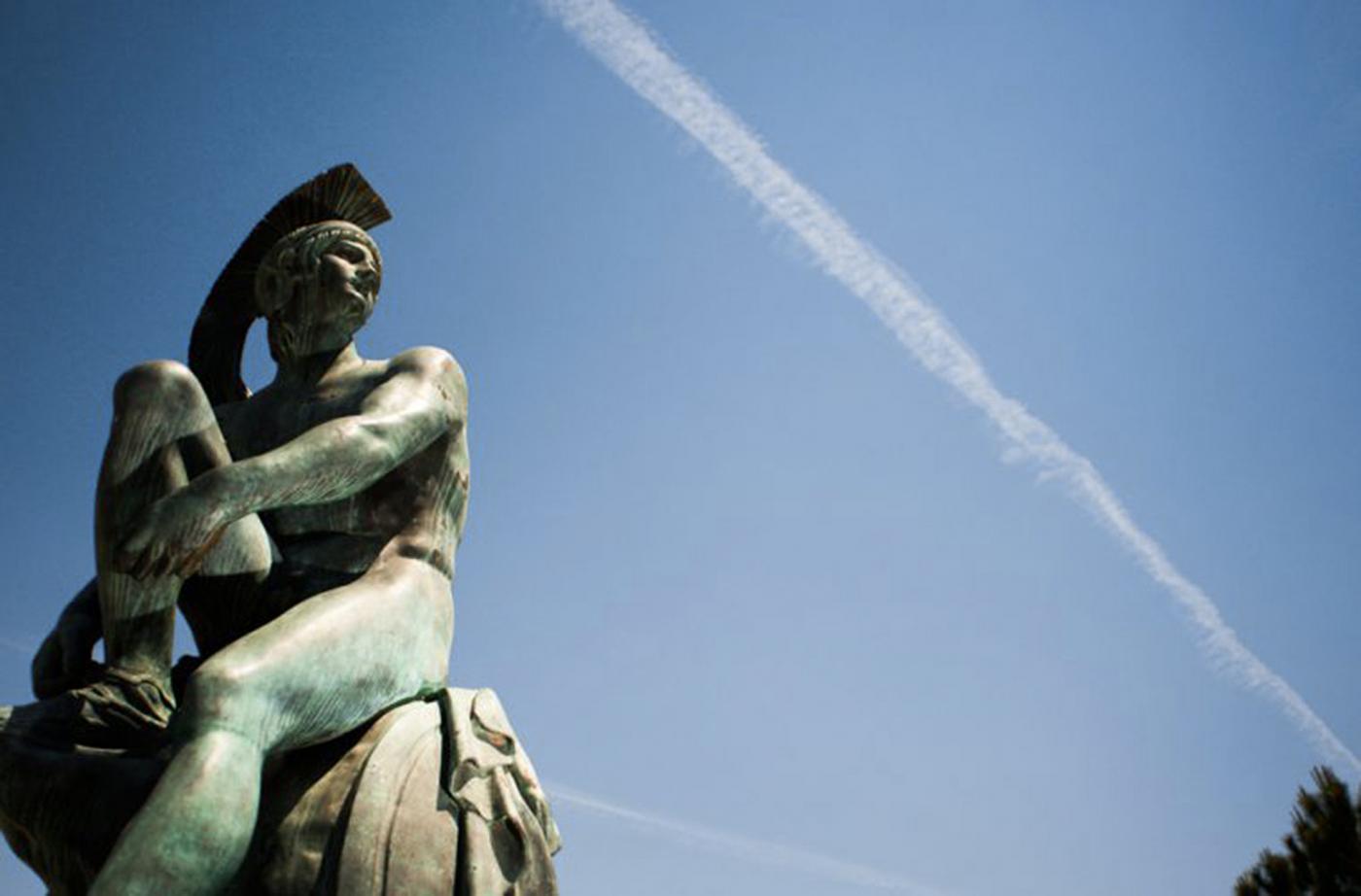Zack Cahill walks the city where gay was invented: the one and only Athens.
The 2006 movie 300 – an explosion of CGI bloodshed and homoeroticism set in ancient Greece – contains a line of dialogue that caused a minor furore at the time. In an exchange between the uber-butch King Leonidas and some lackey, the Spartan king offhandedly refers to the less war-like Athenians as ‘boy lovers’. At the time it felt like another throwaway example of Hollywood homophobia, but on a tour of Athens focusing on gay love stories, I learned the more nuanced truth from my guide Nicos.
History is far more complex and interesting than the simplified stories we tend to tell ourselves about it. Ancient Greece provided the world with democracy, Socratic inquiry and even under-floor heating. And yes, gay sex was indeed socially accepted – the first Greek philosopher Herodotus listed ‘copulating with boys’ as one of the great pleasures of life. But it wasn’t paradise lost for liberals, or even San Francisco in togas.
It was, by today’s standards, both incredibly conservative and incredibly progressive in different ways. The Spartans were basically fascists: throwing imperfect babies off cliffs was just one of their more extreme ways of keeping their stock ‘pure’. Gay relationships were a method of strengthening their military. They figured you’d fight harder for the man beside you if you were sleeping with him. I learned that the Athenians had a different approach entirely, based on the teacher/student dynamic, which throws a different light on Leonidas’ remark.
It worked like this: an older man would approach a younger boy, usually at the gymnasium (because some things never change) and offer him a small rooster as a token of his affection (because some things change quite a lot). The pursued younger boy would be between 14 and 18, and his suitor would be not yet of marrying age, so probably in his late twenties. It was seen as a method of preparing the boy for citizenship and military service, and while the relationship was overtly sexual, there were at least some concessions to general education. Strict conventions were adhered to, with the older lover (erastes) aggressively pursuing the younger (eromenos), wooing him with gifts and singing songs about how handsome he was. Poems of the time often depict the pursued boy as arrogant and standoffish, and the pursuer as mad with lust, tightly in the clutches of Eros, the god of sexual desire.

This story first appeared in The Authentic Athens Issue, available in print and digital.
Subscribe today or purchase a back copy via our online shop.
I don’t know if this is just my experience, but talking to Greeks about their past elicits a certain blurring of myth and history. Nicos wove seamlessly from hard facts and dates to stories of lovesick gods taking revenge on the men who scorned them. Of course, there may have been some creative license at play, and this has a precedent; ancient military records describe heavenly interventions as casually and dryly as profit and loss accounts. You read of legions coming to a raging river, only for Zeus to obligingly fell a tree for them so that they could cross. Do we call this mass hallucination or creative license? Or simply the Athenian equivalent of saying “by the grace of God, we crossed the river”?
The gods themselves had boyfriends left, right and centre of course. As our tour reached the Agora, we learnt about Hyacinth, a beautiful young man who attracted the affection of both Apollo and Zephyr, the god of the west wind (whose frieze appears on the ancient bathhouse). Given the choice between the god of music, poetry, art and sunlight, and the guy who billows your toga in a heavy breeze, Hyacinth opted for the former. Big mistake. Shortly after, while Hyacinth and Apollo took turns throwing a discus, Zephyr used his meteorological chops to blow the discus right into Hyacinth’s very mortal skull, killing him instantly.
The factual stories are as every bit as melodramatic as the myths. When Emperor Hadrian fell in love with Antinous of Thrace, he wooed him with a cruise down the Nile. Sadly, Antinous managed to drown on the way, and Hadrian promptly turned his dead lover into a near god, deifying him, building statues and placing images of him and them together, throughout the empire in a Warholian act of iconification.
As we reached the French Capuchin monastery near the foot of the Acropolis, the narrative jumped forward to the early 19th century and the dashing figure of Lord Byron who stayed here. The Greek ambassador had lined his daughter up for the great poet, but Byron had already fallen for a certain Nicolo Giraud, a local of French parentage. In a letter from the time, Byron penned the following; “But my friend, as you may easily imagine, is Nicolo who by-the-by, is my Italian master, and we are already very philosophical. I am his ‘Padrone’ and his ‘amico’, and the Lord knows what besides. It is about two hours since, that, after informing me he was most desirous to follow me over the world, he concluded by telling me it was proper for us not only to live but ‘morire insieme’ [die together]. The latter I hope to avoid – as much of the former as he pleases.” The gay spirit of Athens strikes yet again.
With all this talk of men driven wild with lust, it was only appropriate that we ended up in the Zappeion gardens at the statue of Eros – the god who drove the erastai to throw roosters at those boys at the gym, and who caused Hadrian to turn his tragic boyfriend into a kitschy Archaic celeb. It’s even more appropriate that the area around the statue is a popular gay cruising spot. And that’s where we ended our tour, under the shadow, though not in the clutches of Eros. More in the clutches of hunger. I said my goodbyes and went to eat in a gay bar in the square of St Eirini. It was called The Rooster.
Our guide was Nicos Nicolaides, co-founder of Big Olive City Walks, a gay owned collective of professionals (most with advanced degrees in their specialists subjects) who offer unique Athenian walking tours like this one about the trials and triumphs of gay love in Athens.
Photography by Chronis Yan (via Unsplash) amongst others
Get out there
Do…
… read up on gay stories in Greek mythology and history before you go. You’ll find out why they say that the Greeks invented being gay.
… visit the Central Market, not only is it an amazing sight, it is sat between two streets (Armoudiu and Aristogitonos) named after the gay warriors who first brought democracy to the city.
… try to get on a walk with Nicos – he’s a great storyteller.
Don’t…
… forget to look for the clues in ancient art, look closely and you’ll find many pieces depict same-sex relationships.
… look for happy endings, most Greek gay love stories are tragic, and some might have you reach for a tissue.
… miss out on a visit or two to St Eirini’s al fresco coffee joints where you can watch today’s Greek gay gods seek mortal love. It’s one hell of a spectacle.








